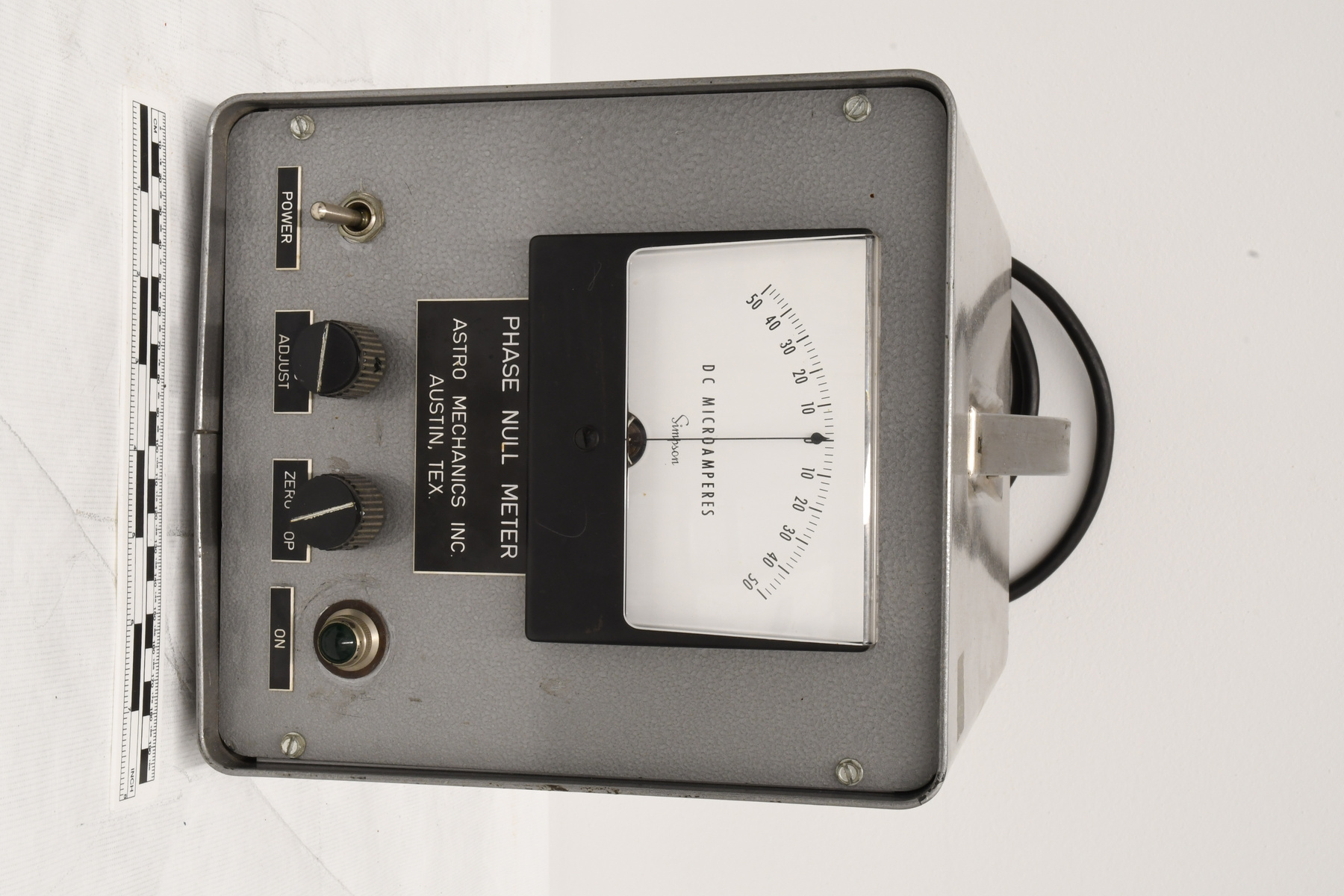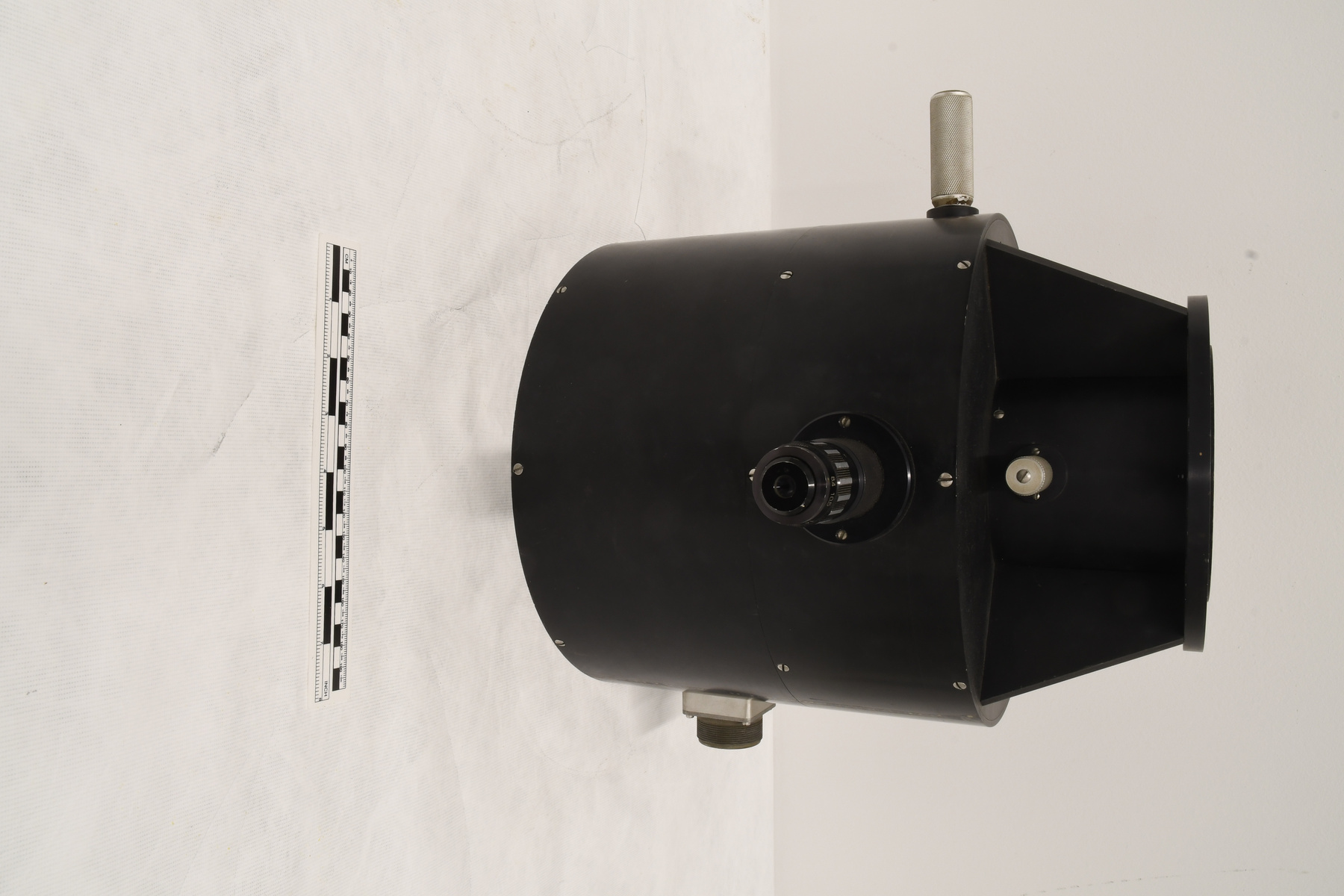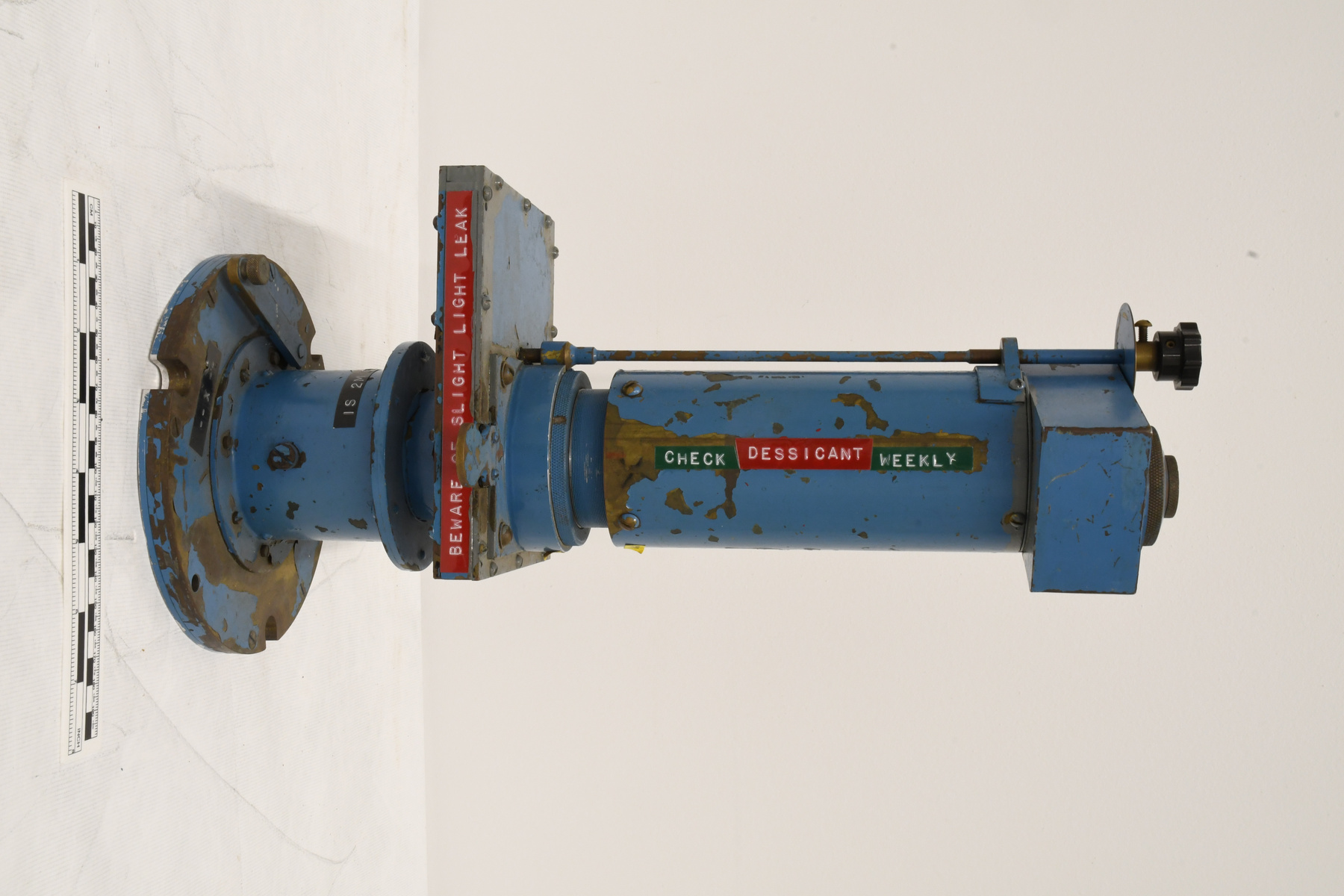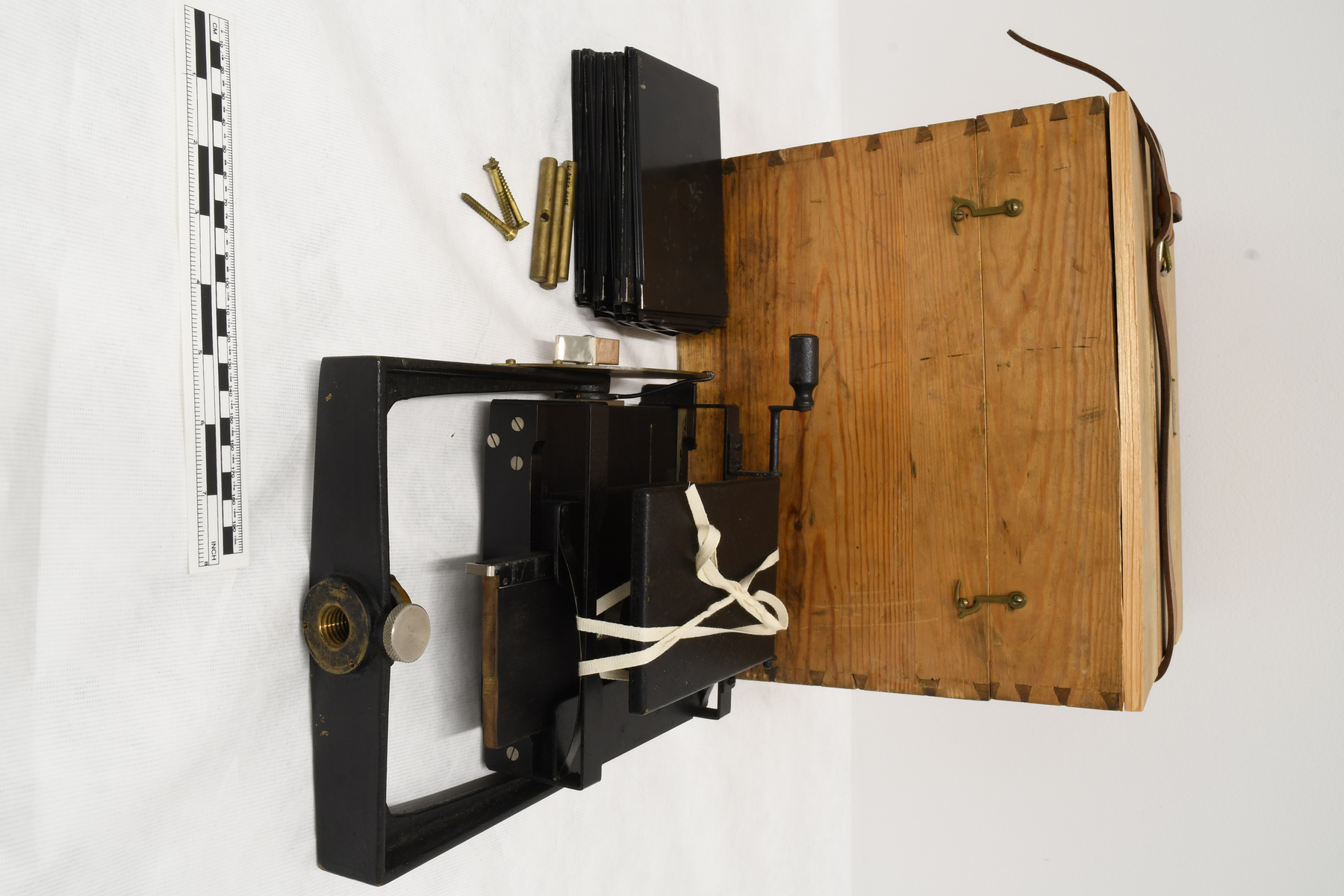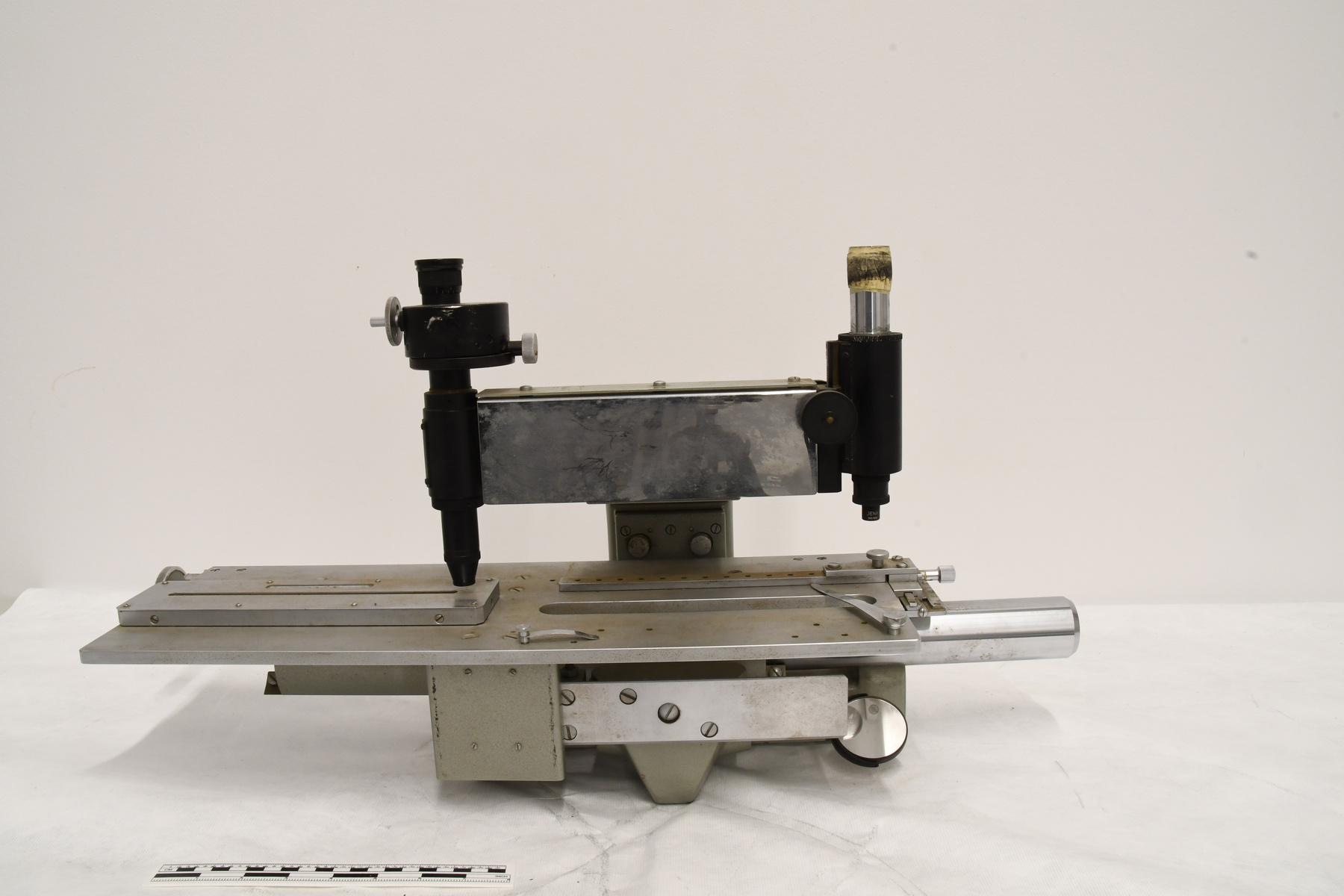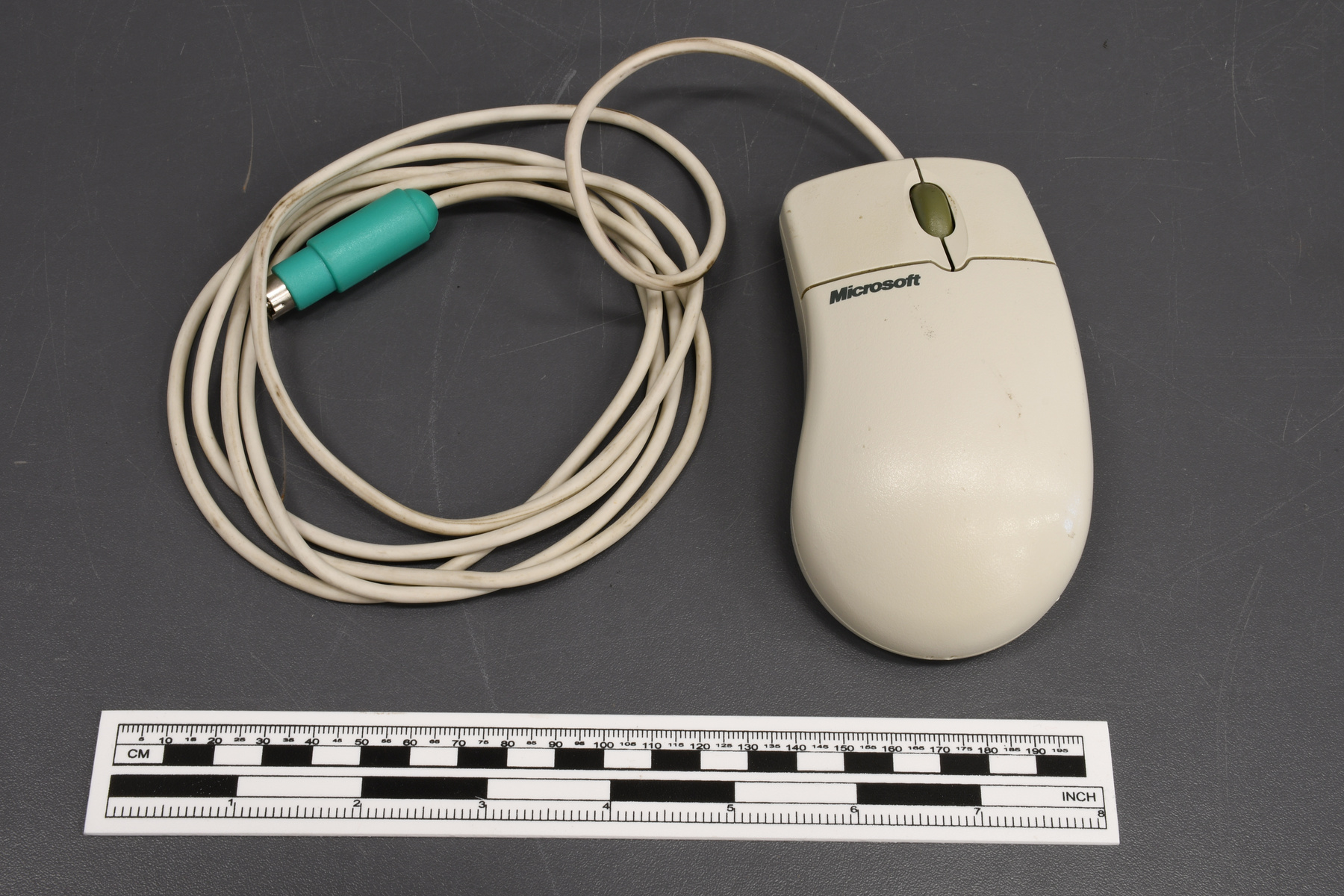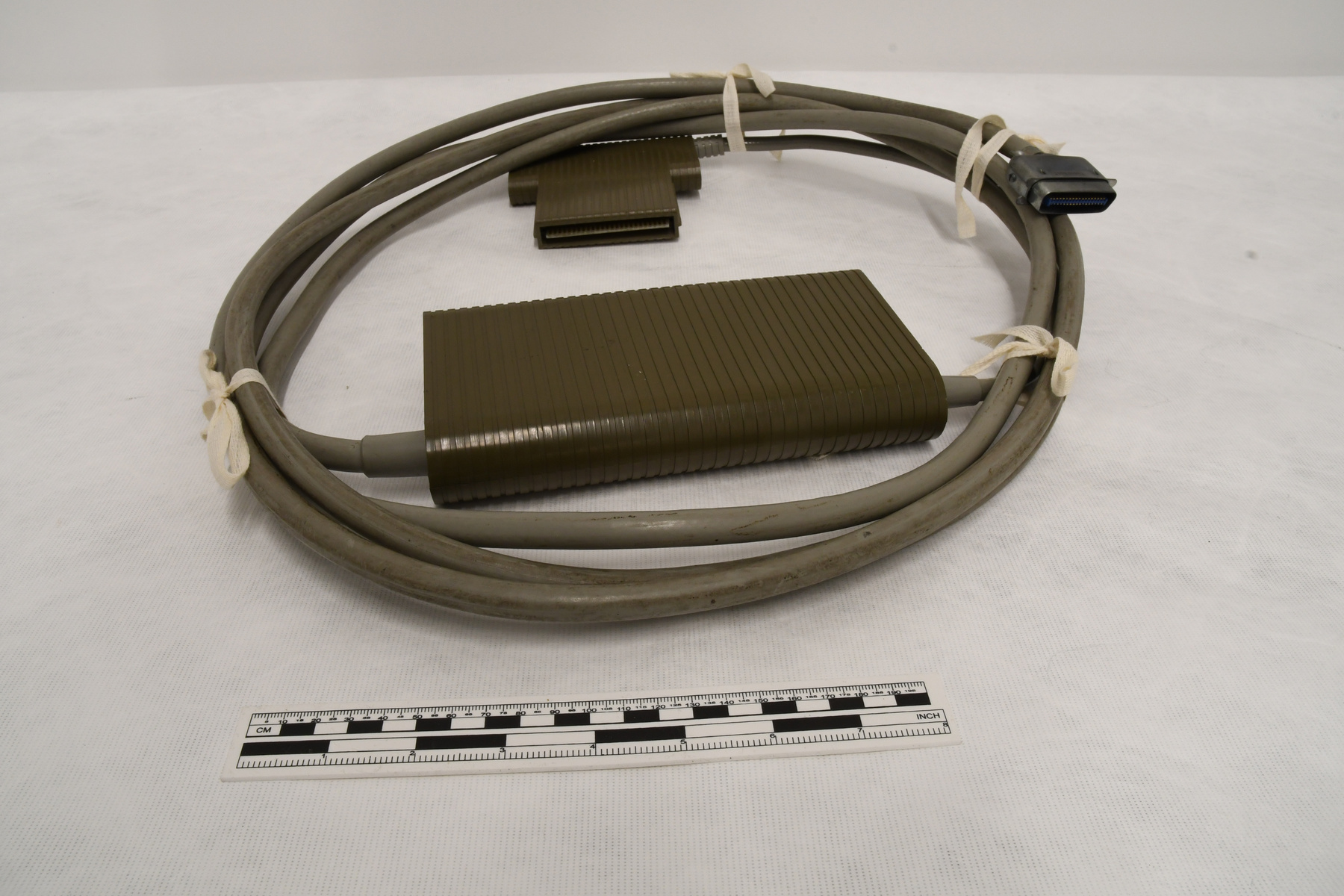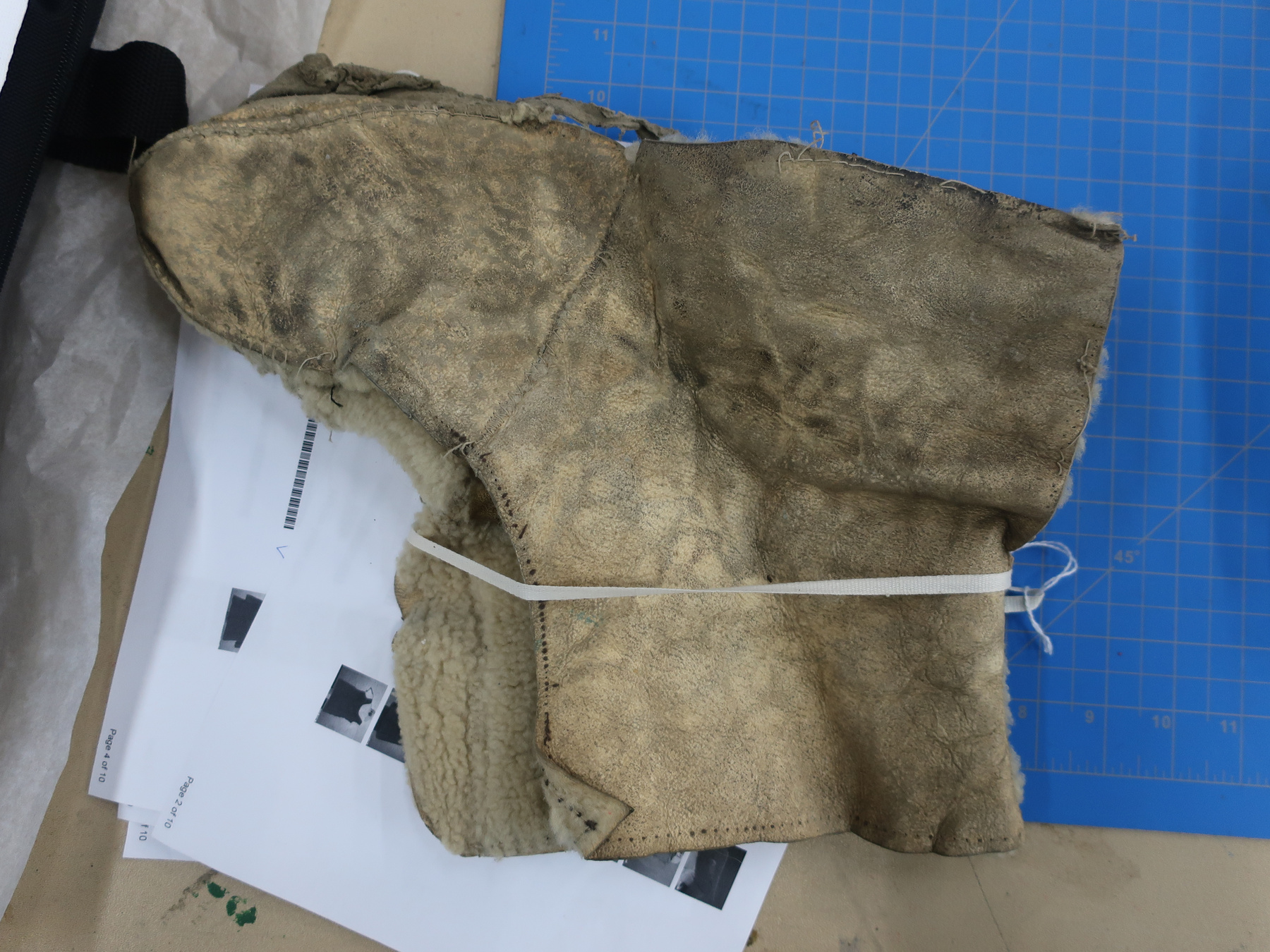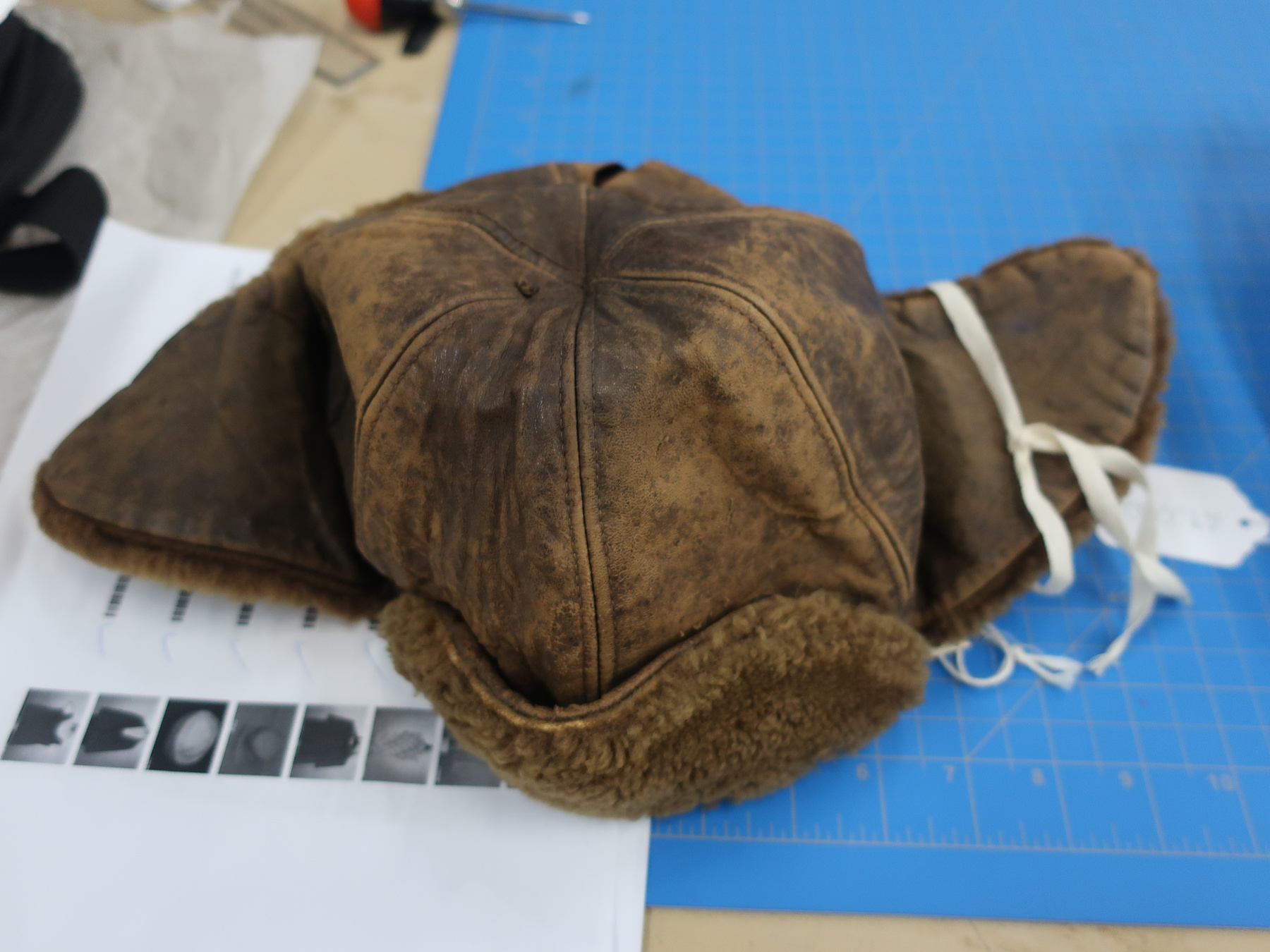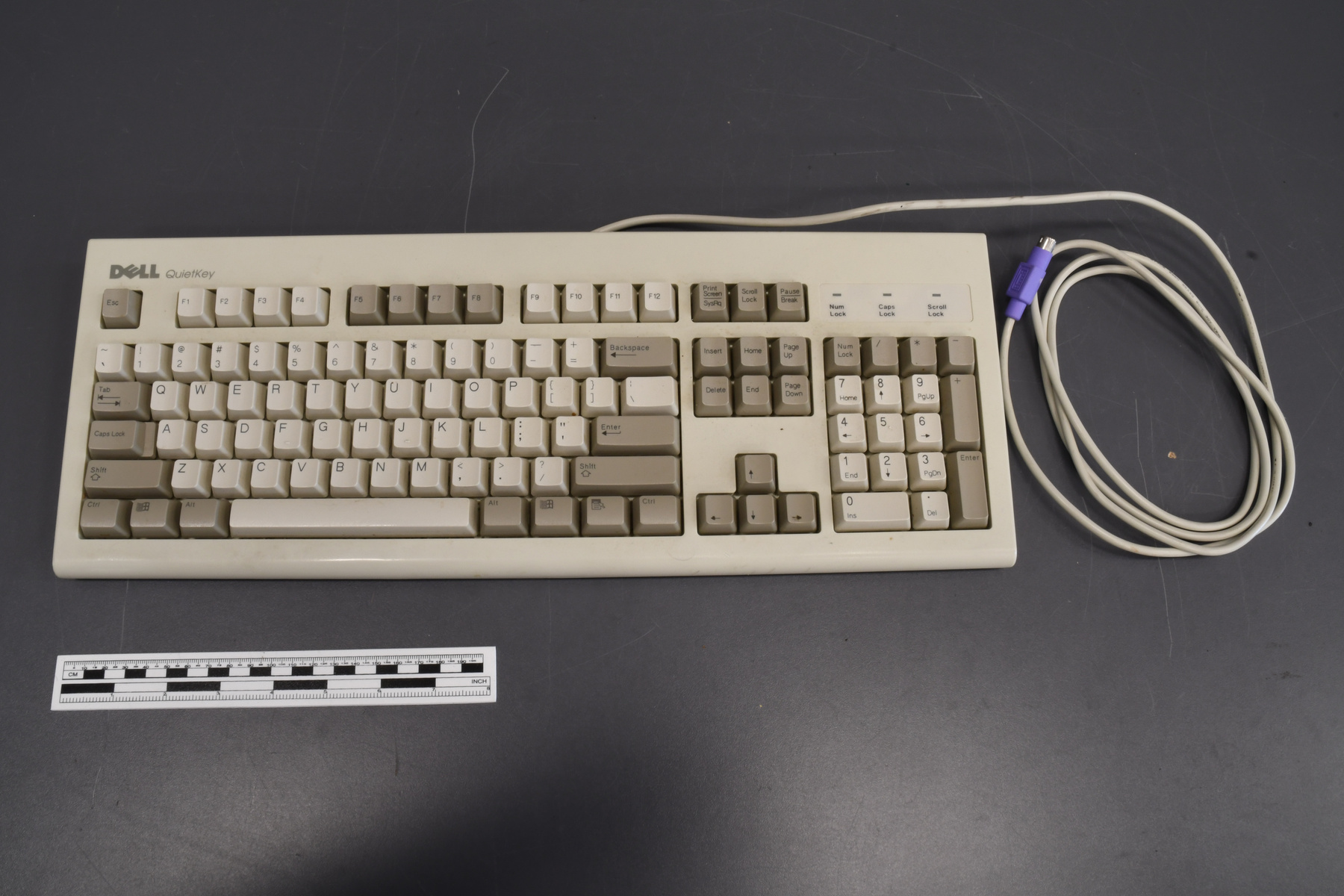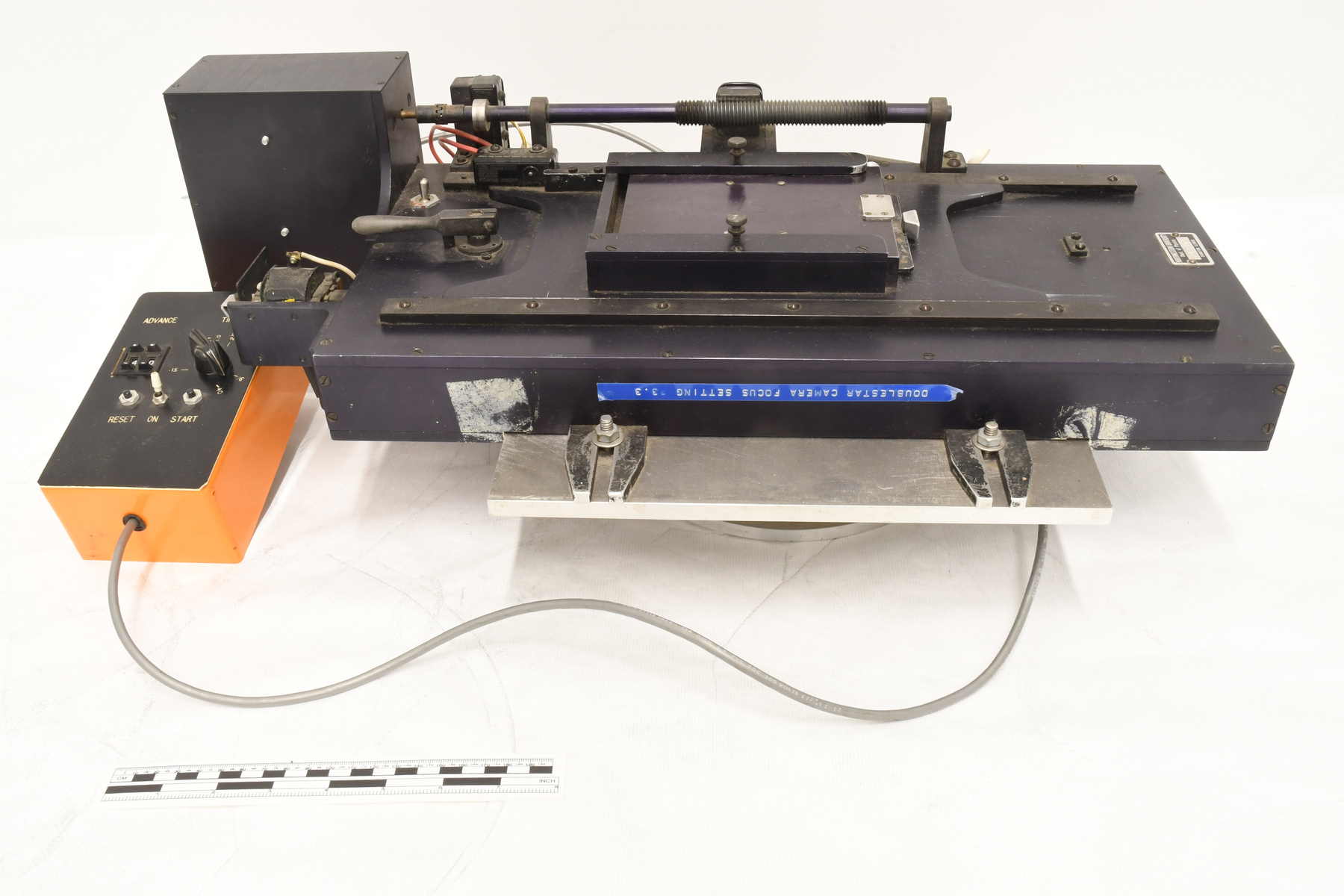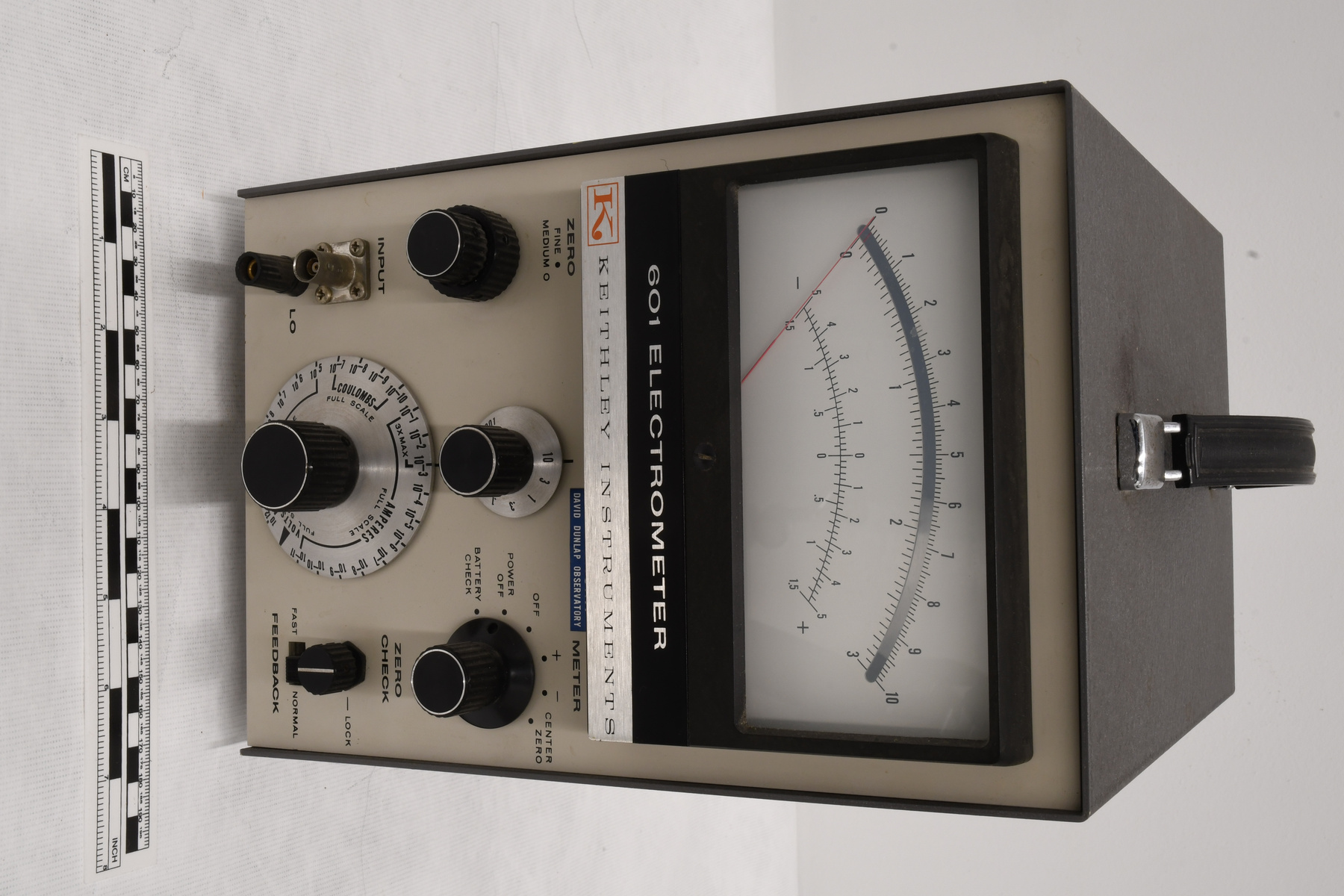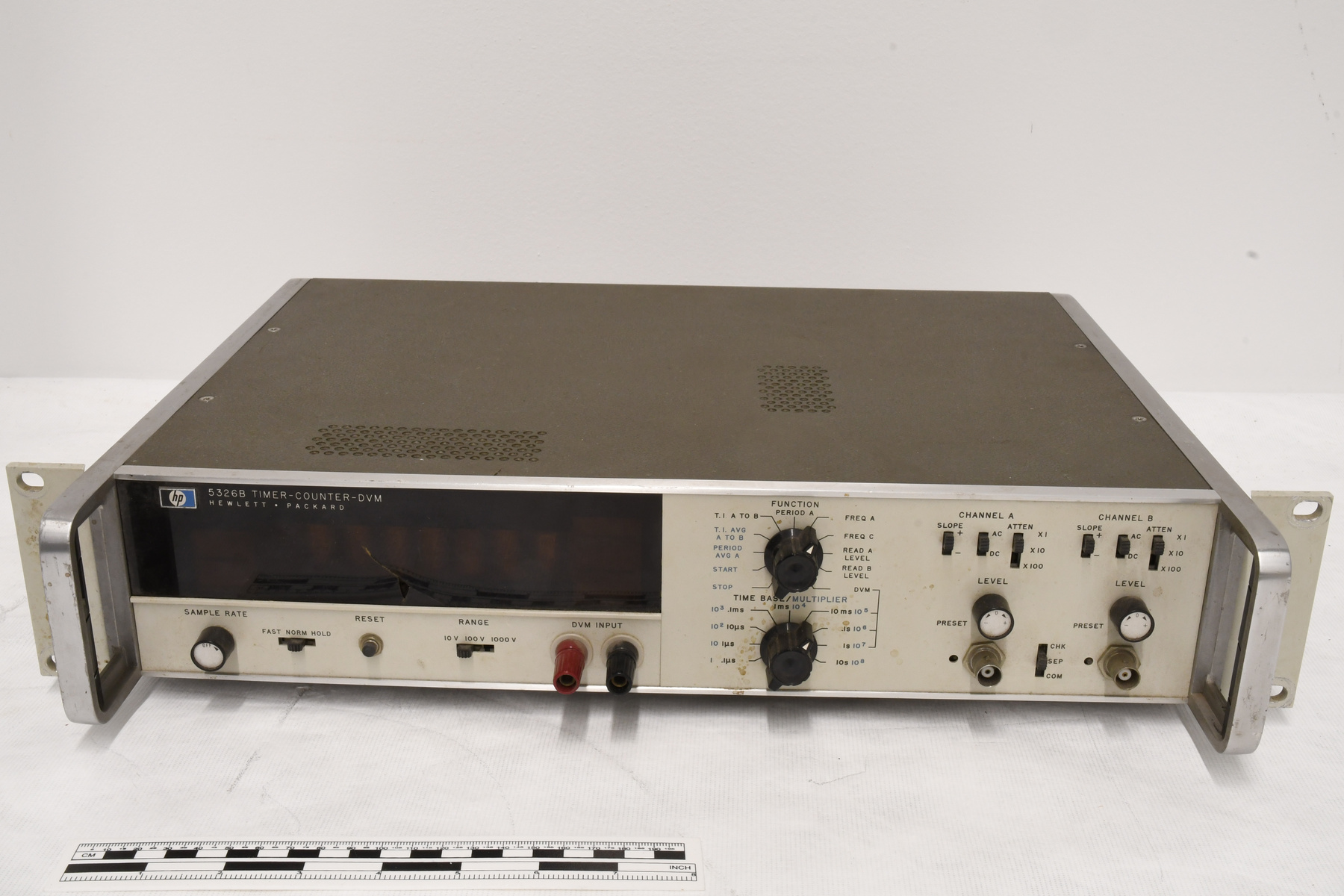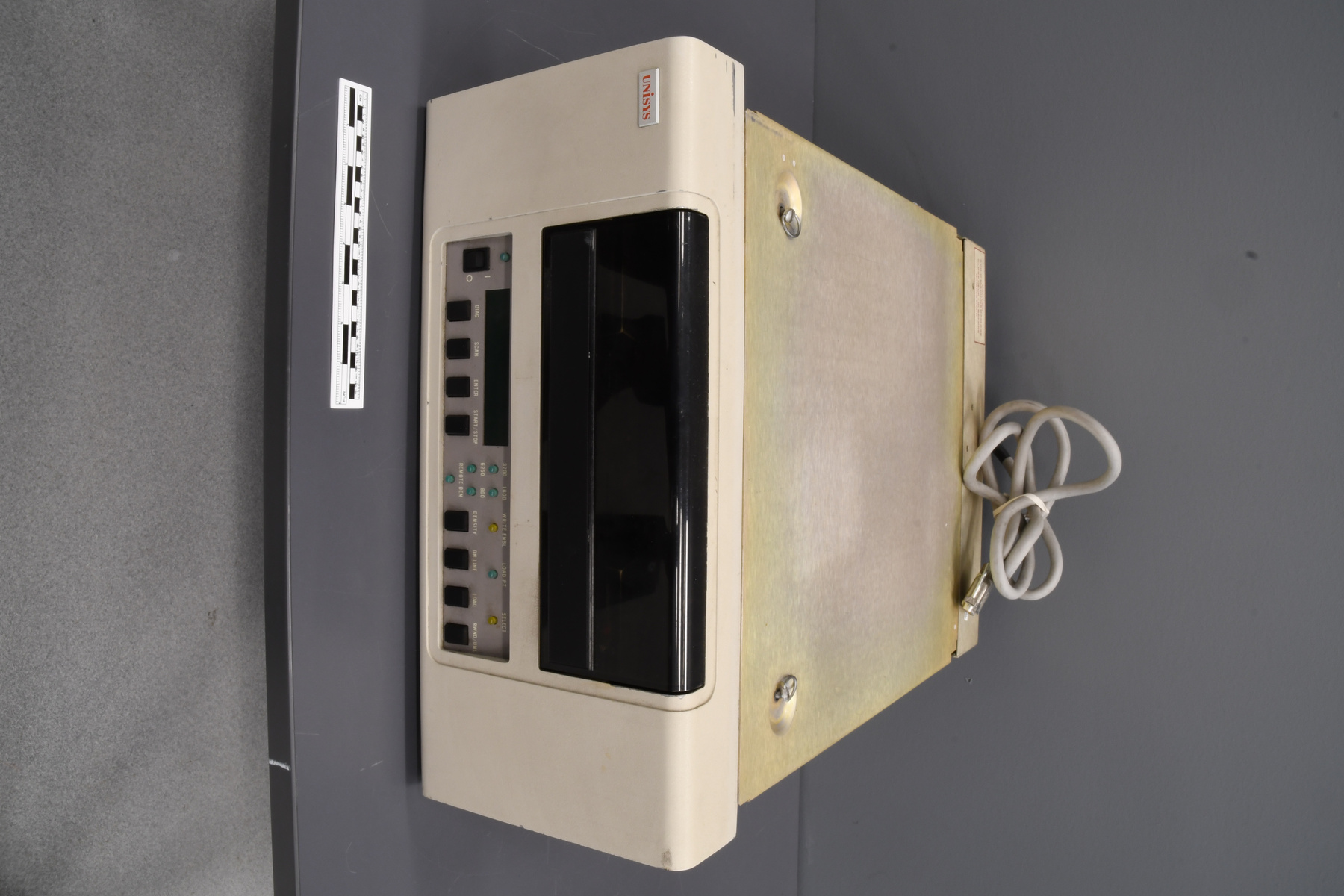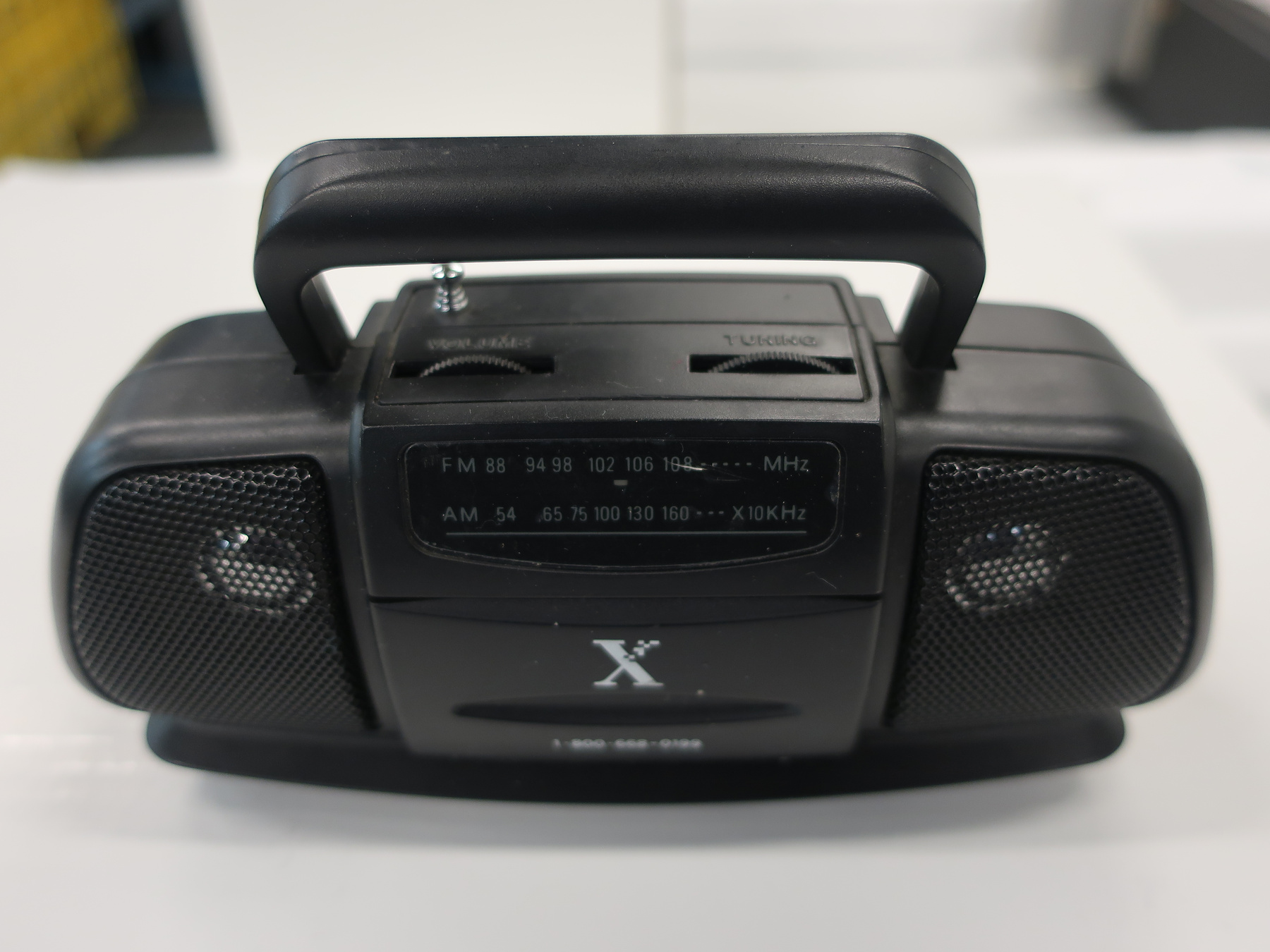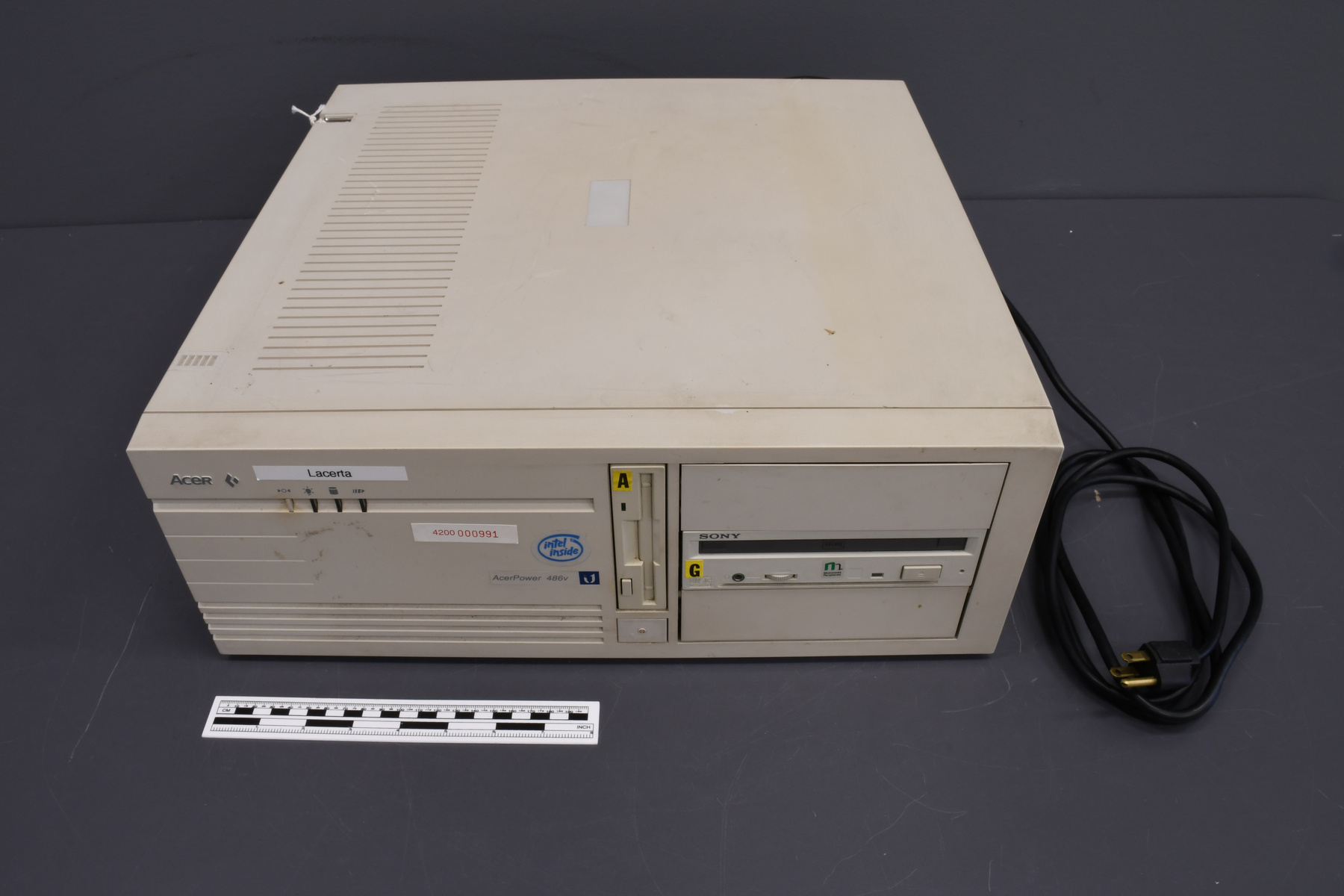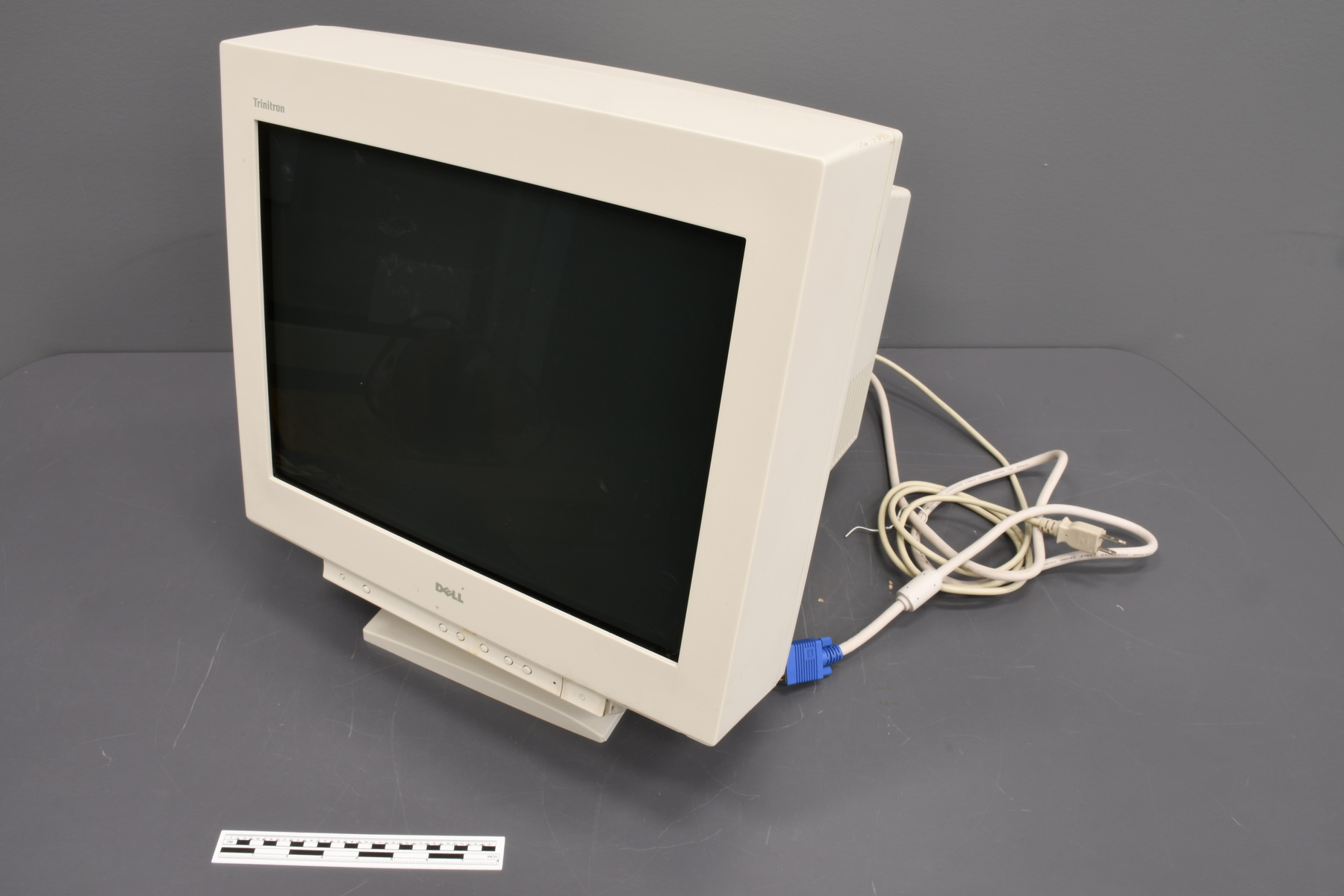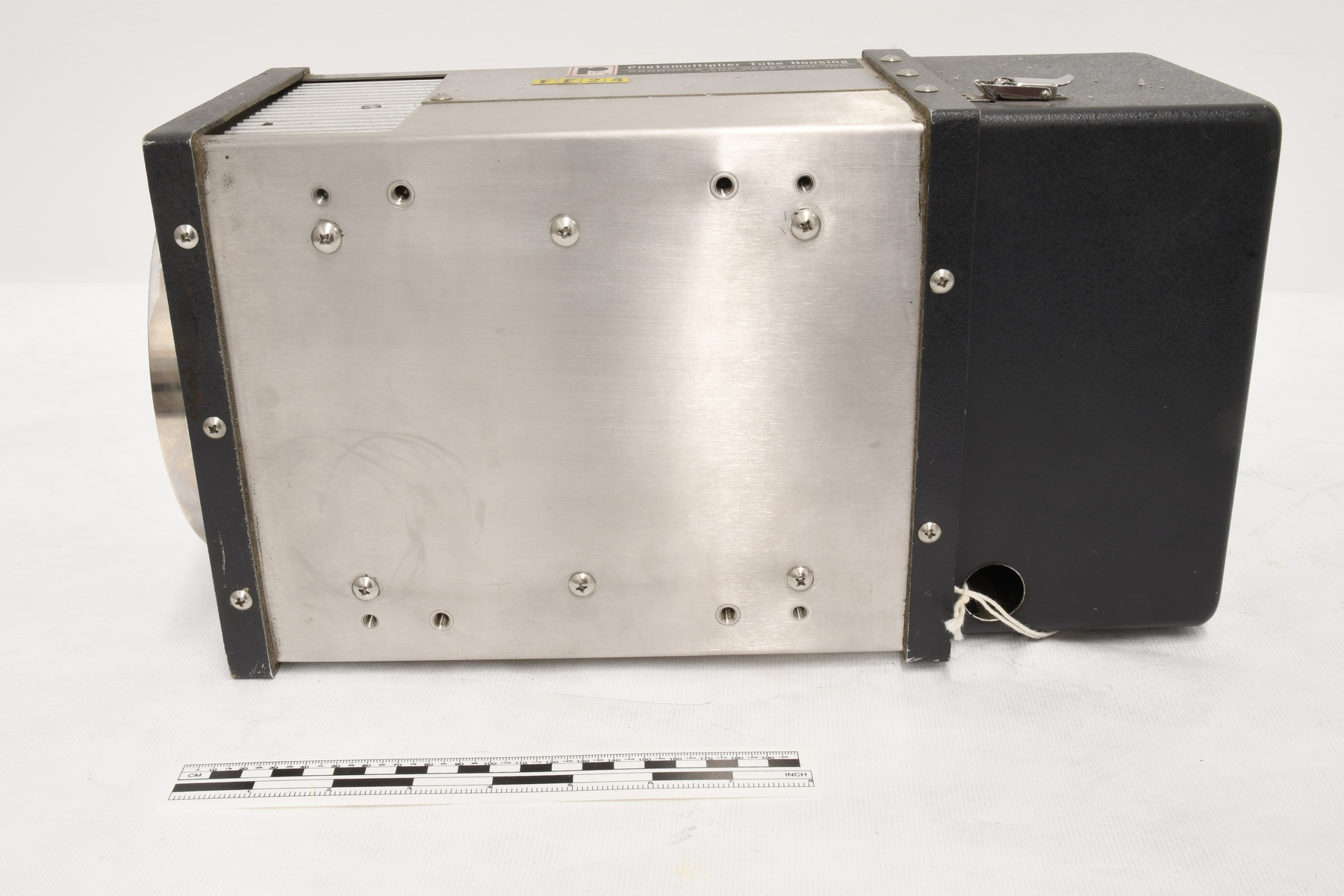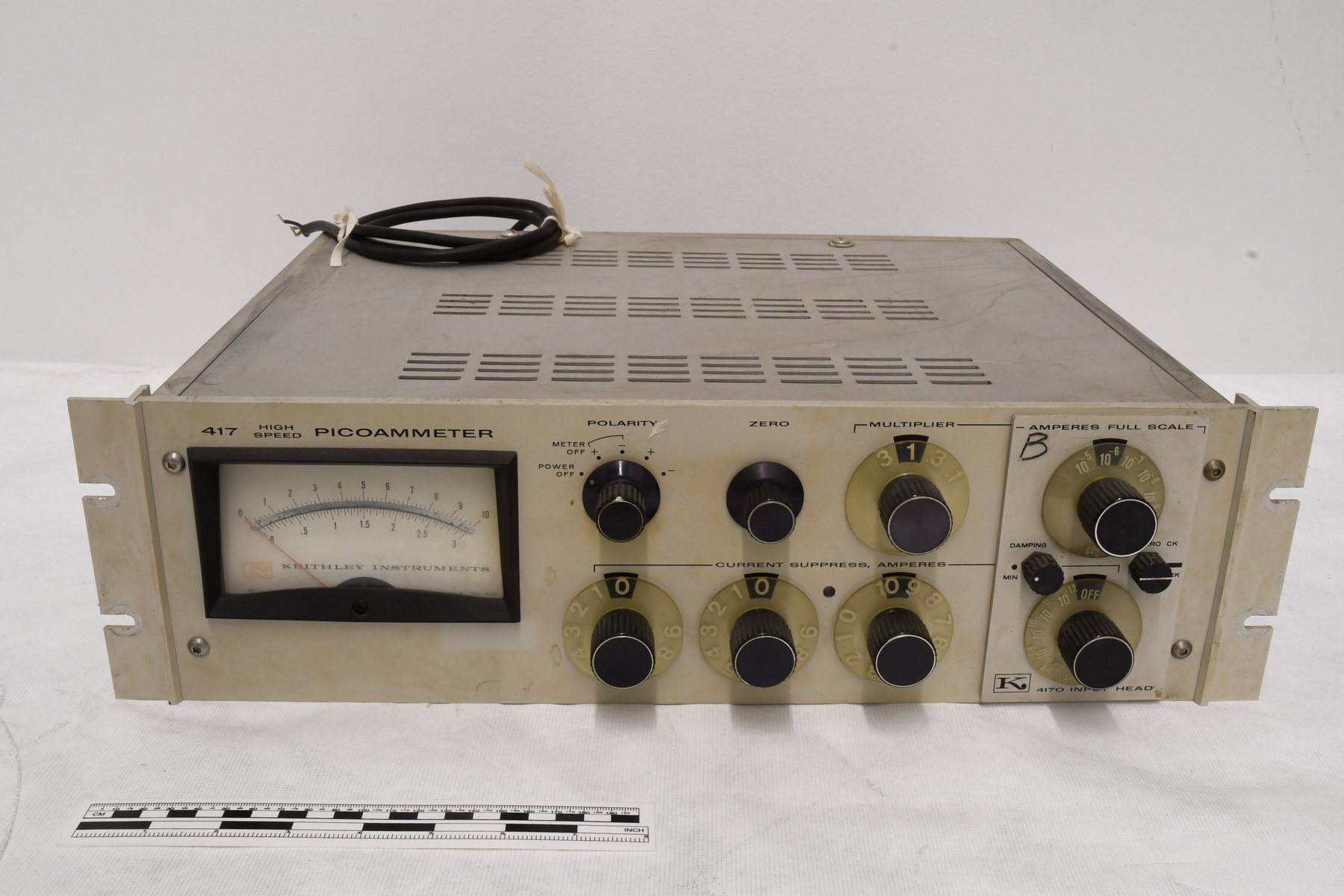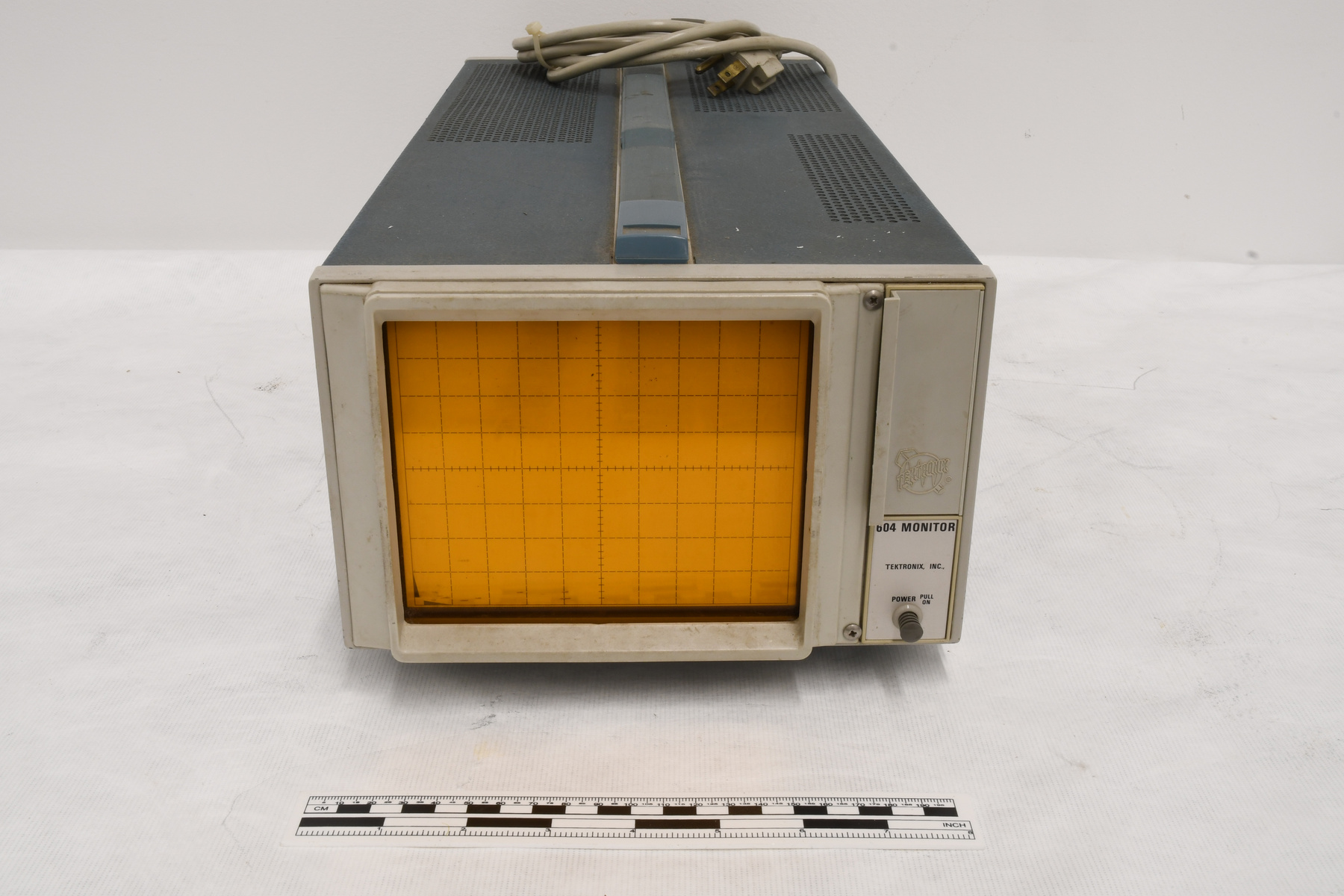Astrophotometer
Use this image
Can I reuse this image without permission? Yes
Object images on the Ingenium Collection’s portal have the following Creative Commons license:
Copyright Ingenium / CC BY-NC-ND (Attribution-NonCommercial 4.0 International (CC BY-NC 4.0)
ATTRIBUTE THIS IMAGE
Ingenium,
2008.0184.001
Permalink:
Ingenium is releasing this image under the Creative Commons licensing framework, and encourages downloading and reuse for non-commercial purposes. Please acknowledge Ingenium and cite the artifact number.
DOWNLOAD IMAGEPURCHASE THIS IMAGE
This image is free for non-commercial use.
For commercial use, please consult our Reproduction Fees and contact us to purchase the image.
- OBJECT TYPE
- N/A
- DATE
- 1962
- ARTIFACT NUMBER
- 2008.0184.001
- MANUFACTURER
- Astro Mechanics Inc.
- MODEL
- Cuffey Iris Astrophotometer
- LOCATION
- Austin, Texas, United States of America
More Information
General Information
- Serial #
- N/A
- Part Number
- 1
- Total Parts
- 1
- AKA
- N/A
- Patents
- N/A
- General Description
- Metal base, casings, controls, parts/ Synthetic controls, electrical cord covering, parts/ Glass screen
Dimensions
Note: These reflect the general size for storage and are not necessarily representative of the object's true dimensions.
- Length
- 97.0 cm
- Width
- 51.0 cm
- Height
- 66.0 cm
- Thickness
- N/A
- Weight
- N/A
- Diameter
- N/A
- Volume
- N/A
Lexicon
- Group
- Physics
- Category
- Light & electromagnetic radiation
- Sub-Category
- N/A
Manufacturer
- AKA
- Astro
- Country
- United States of America
- State/Province
- Texas
- City
- Austin
Context
- Country
- Canada
- State/Province
- Ontario
- Period
- 1963+
- Canada
-
An instrument used at the David Dunlap Observatory at the University of Toronto, one of Canada's most important astronomical observatories. The David Dunlap Observatory opened in 1935 as the result of a bequest from the wife of David Dunlap. The telescope was a 74 inch (188 cm) reflector built by Grubb Parsons of Newcastle-upon-Tyne in England. The 74 inch was then the largest telescope in Canada (surpassing the 72 inch telescope of the Dominion Astrophysical Observatory in Victoria) and became the second largest in the world after the 100 inch Hooker Telescope of the Mt. Wilson Observatory outside Los Angeles. DDO's reputation grew and following WWII, it began to graduate most of the astronomers produced in Canada with University of Western Ontario far behind. Beginning in the 1960s a number of other astronomy departments were created but UofT/DDO held its place, a position it probably still holds. The DDO had a good technical staff which gave them an advantage and, with most of the 1940s to early 1970s top astronomers coming from UofT, grants from NRC and then ENSERC were almost guaranteed and allowed UofT's top astronomers -- Hogg, van den Berg, Fernie, Bolton, Kamper, Martin, etc. to acquire or build some of the best equipment available in university observatories. For optical observatories, only the DAO had technical staff and budgets that surpassed those of DDO. In 2007, citing increasing light pollution, the University of Toronto announced plans to sell the Observatory property. In June 2008, it was sold to Corsica Development Inc., a subsidiary of Metrus Development Inc. and the Observatory was closed. In 2009 the Observatory buildings and 80% of the site were designated a cultural heritage landscape. Also in 2009 Corsica and the Royal Astronomical Society of Canada, Toronto Centre announced an agreement allowing the RASC to provide public education and outreach programs at the observatory, and to operate the 188 cm telescope. - Function
-
An instrument used in astronomy to measure the diameter of star images on photographic plates. - Technical
-
A Cuffey Astrophotometer was acquired in 1963 by the David Dunlap Observatory for the use of Dr. Helen Sawyer Hogg, to allow her to measure the variability of Cephied type variables in globular clusters, a topic in which she was a leading authority. It was used to measure the diameter of star images on photographic plates. The diameter (and density) are related and can be calibrated with stars of known brightness to yield a graph of the brightness of known stars. When used to measure stars in open or globular clusters, one can determine the age and/or distance of the clusters, periods and types of variable stars, etc. The accuracy was dependant on the calibration and the brightness of the stars being measured. Typically a number of plates were measured depending on the type of stars being measured. As the distance to a cluster increased, the brightness of the stars decreased and the uncertainty increased. Such instruments were used until recent times with historic plates but CCD chips made these instruments increasingly obsolete from the mid-1980s. Drs. Helen Sawyer-Hogg, and Christine Clement were the main users of this particular machine though the department had a second one primarily used by other faculty and grad students. This machine had been upgraded to allow use of an oscilloscope which improved the accuracy and speed of making the measurements. St. Mary's Univ., UWO and other observatories had similar machines. - Area Notes
-
Unknown
Details
- Markings
- Black plate with white lettering on front reads 'CUFFEY IRIS/ ASTROPHOTOMETER/ MFD. BY/ ASTRO MECHANICS INC./ AUSTIN, TEX.'/ Silver plate on each side reads 'AM [logo]/ ASTRO MECHANICS/ AUSTIN TEXAS', each with black plate below reading 'CUFFEY IRIS/ ASTROPHOTOMETER'/ Black lettering on dial face reads 'DC MICROAMPERES' and 'Simpson [script]', with scale for 0 to 100/ Black labels with white lettering for control functions
- Missing
- Unknown
- Finish
- Textured black painted base/ Flat black painted hood/ Brushed metal and metallic grey casings/ Black painted and gold coloured parts/ Black synthetic/ Colourless transparent screen
- Decoration
- N/A
CITE THIS OBJECT
If you choose to share our information about this collection object, please cite:
Astro Mechanics Inc., Astrophotometer, circa 1962, Artifact no. 2008.0184, Ingenium – Canada’s Museums of Science and Innovation, http://collection.ingeniumcanada.org/en/id/2008.0184.001/
FEEDBACK
Submit a question or comment about this artifact.
More Like This
